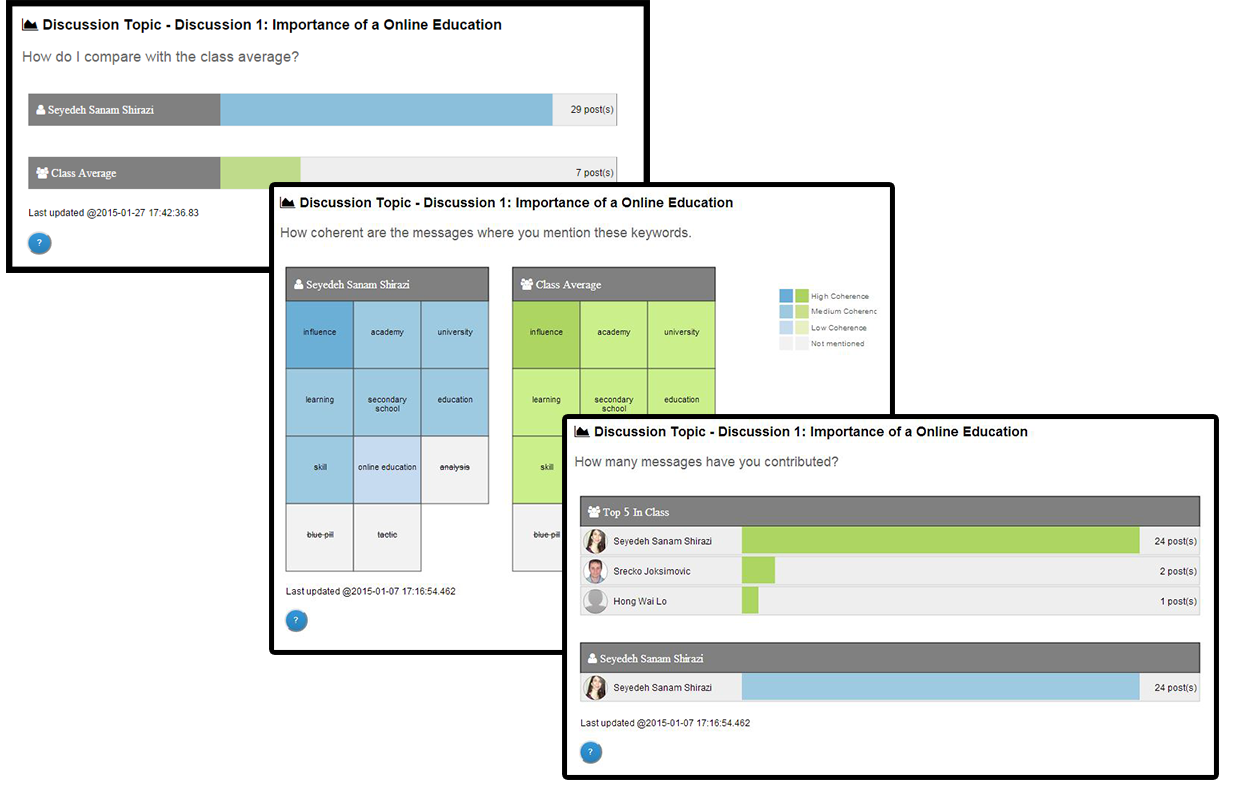
Open Learner Modeling
The learner model is a form of a user model that the system builds about the learner. It typically captures what the learner knows, how she interacts with the system, how she engages in learning activities, what grades she gets from the graded activities, and how she engages with other students. Such a model is used by algorithms to adapt or personalize some of the system behaviour, such as provide suggestions to the learner what to study or recommend additional resources or peers to interacts with. When we present the model or some aspects of it to the learner, we call it an Open Learner Model (OLM). OLMs) have been applied in many traditional (desktop) online learning settings as well as in mobile learning. OLMs can fulfill several purposes, of which five are directly related to student’s learning: 1) promote learner reflection, 2) facilitate self-monitoring, 3) support planning, 4) encourage learners’ control and responsibility for their learning, and 5) provide a source of information for competitive interaction. OLMs are one of the tools at the center of the newly formed field of Learning Analytics (LA) that is largely concerned with improving learner success through analyzing data about the learner(s) and presenting them to stakeholders for further analysis and action.
Although OLM researchers have been proposing and evaluating different types of OLMs, to date the evaluations have focused mainly on the usability aspects of the user models, and predominantly on teachers and administrators. In our research we aim to develop a theoretical model for studying the effectiveness of OLMs for improving students’ learning and developing guidelines for selecting the most effective OLM form for a particular student in a particular learning situation.
Our research in OLMs is closely intertwined with that in Learning Analytics. We develop prototypes of OLM to test hypotheses, integrate them into the Canvas LMS, and run user studies with a goal to establish the theoretical framework for OLMs effectiveness.